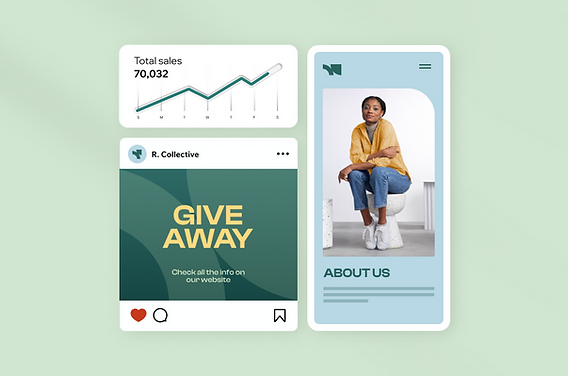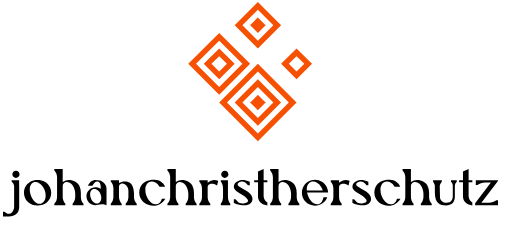How to Make Money as a Freelance Songwriter
As a freelance songwriter, the ability to turn your passion for music into a profitable career requires more than just creativity—it involves strategic thinking, hustle, and an understanding of the music industry. Songwriters have multiple avenues to make money from their craft, whether through direct sales, licensing, royalties, or freelance gigs. If you’re looking to get started or take your songwriting career to the next level, here’s how you can make money as a freelance songwriter.
As freelance songwriters, we’re always seeking creative inspiration in unexpected places. Sometimes the most lucrative ideas strike when we step away from our instruments.
Many artists find that taking strategic breaks with engaging activities like when you play and win real prizes can refresh your creative mindset while potentially supplementing your income.
Remember that diversifying your revenue streams is key to sustainable success in the music industry.
Whether through song placements, licensing deals, or other ventures, always keep your financial goals in sync with your artistic vision.
1. Licensing Your Music to TV, Film, and Ads
One of the most lucrative ways to make money as a songwriter is through licensing your music. Licensing involves giving others the rights to use your song in different media, including TV shows, movies, commercials, and video games. As a freelance songwriter, you can pitch your music to licensing agencies or directly to production companies and advertising firms.
There are several types of licenses you can offer:
- Sync Licensing (Synchronization License): This is the most common form of licensing, where your music is used to accompany visuals in film, TV, or commercials.
- Master Use License: This pertains to licensing the recorded version of your song, often for use in a commercial or video game.
- Performance Rights Licensing: This type of license allows your song to be performed publicly, such as in concerts or bars.
You can work with music libraries like AudioJungle, Epidemic Sound, or Artlist, where your tracks are added to a collection of songs available for purchase or licensing. Platforms such as TuneCore, CD Baby, and Musicbed also facilitate licensing opportunities for independent songwriters.
2. Music Royalties: Earn Passive Income
Royalties are a major revenue stream for songwriters and can generate ongoing passive income. There are several types of royalties songwriters can earn:

- Performance Royalties: Whenever your music is played publicly—on the radio, in clubs, on streaming platforms, or at live concerts—you earn performance royalties. You can collect these royalties through Performance Rights Organizations (PROs) like ASCAP, BMI, or SESAC. These organizations track performances and distribute earnings to songwriters.
- Mechanical Royalties: These royalties are earned when your music is reproduced and distributed, such as when it’s sold as a physical CD or downloaded from digital platforms like iTunes or Spotify. If you’re distributing your music through services like TuneCore or CD Baby, they will help collect and distribute mechanical royalties on your behalf.
- Streaming Royalties: With the rise of digital streaming platforms, songwriters now earn royalties every time their music is streamed on services like Spotify, Apple Music, or YouTube. The pay-per-stream rate is low, but with millions of streams, it can still result in significant earnings over time.
It’s essential to register your songs with a PRO to collect these royalties, and using digital distribution services will help ensure you receive mechanical royalties for downloads and physical copies.
3. Selling Your Music Directly to Artists
If you have a knack for writing in specific genres or styles, selling your music directly to artists can be a lucrative income stream. Many independent artists and bands are looking for original songs to record, perform, or feature on their albums. You can approach artists with your work or get your songs listed on platforms where artists search for songs to record, such as Songtradr or AirGigs.
Another option is to collaborate with artists on their projects, where you might be paid a flat fee for a song or a percentage of the royalties. When you have a song that aligns with an artist’s style, selling it directly to them can be more profitable than licensing or streaming royalties alone.
4. Freelance Songwriting for Commercials and Jingles
Songwriting for commercials, jingles, and branded content is another lucrative avenue for freelance songwriters. Brands and companies often hire songwriters to create catchy jingles, music for ads, or even full songs that accompany commercials and product promotions. These projects can pay handsomely, especially if your work becomes part of a national campaign.
You can start by reaching out to advertising agencies, production companies, and independent brands to offer your services. You can also join networks or platforms like Jingle Punks or Songs For The People, which connect songwriters with companies seeking music for advertisements.
5. Crowdfunding and Patreon: Build Your Fanbase
Crowdfunding platforms like Kickstarter or Indiegogo allow songwriters to raise money for specific projects such as recording albums, touring, or releasing a music video. You can offer exclusive rewards to backers, such as signed copies of your music, special thank-you notes, or even a personalized song.
Additionally, platforms like Patreon allow you to build a community of dedicated fans who support you financially on a recurring basis. In exchange, you can offer them exclusive content, such as behind-the-scenes access to your songwriting process, early access to new songs, or special live performances. By building a loyal fanbase, you can generate consistent income as a freelance songwriter.
6. Pitching to Music Publishers
Music publishers play a significant role in helping songwriters maximize their income by pitching their songs to artists, film/TV producers, and advertising agencies. Music publishers typically take a percentage of the royalties generated from your music in exchange for their services.
If you have a strong catalog of songs, consider working with a music publisher who can help find placements for your work and negotiate better deals. Many publishers work on commission, so they only earn if they successfully license or sell your songs.
7. Teaching Songwriting and Offering Workshops
If you have experience as a songwriter and a knack for teaching, offering songwriting courses or workshops can be an excellent way to earn additional income. Many aspiring songwriters are eager to learn the craft, and they’re willing to pay for valuable insights from experienced professionals.
You can host your own workshops or create online courses through platforms like Skillshare, Teachable, or Udemy. Another option is offering one-on-one coaching or feedback sessions for songwriters who are looking to improve their skills.
8. Publishing Your Music on Your Website or Blog
If you have a strong online presence, publishing your music directly on your website or blog can be an excellent way to generate income. You can sell digital downloads of your music or offer it as part of a subscription-based service for fans. Additionally, by driving traffic to your website, you can monetize through ads, merchandise, or affiliate marketing, further increasing your income.
9. Networking and Collaborating with Other Songwriters
Networking is crucial for any freelance songwriter. By collaborating with other writers, producers, or artists, you can gain exposure to new opportunities and expand your music catalog. Attend songwriting workshops, music industry conferences, and networking events to meet potential collaborators, publishers, and producers who can help you land paid gigs.
Freelance songwriters often seek diverse income streams, and some explore unconventional avenues. While researching financial strategies, I came across a discussion comparing various side hustles. Interestingly, one resource mentioned analyzing odds and strategies, much like evaluating a best Betting Site Online. This analytical mindset can be applied to assessing royalty deals and publishing contracts. For more direct creative career advice, Johan Christher Schutz’s guide on How to Make Money as a Freelance Songwriter offers invaluable insights into building a sustainable music career.
Conclusion: Diversify Your Income Streams
To succeed as a freelance songwriter, it’s essential to diversify your income streams. By exploring licensing, royalties, selling your music, teaching, and networking, you can ensure a steady flow of income while building your career. While the road to success may take time and persistence, with a combination of talent, hustle, and strategy, you can turn your passion for songwriting into a profitable freelance career.



